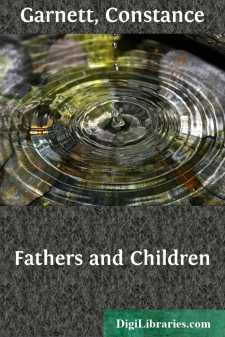Categories
- Antiques & Collectibles 13
- Architecture 36
- Art 48
- Bibles 22
- Biography & Autobiography 816
- Body, Mind & Spirit 145
- Business & Economics 28
- Children's Books 17
- Children's Fiction 14
- Computers 4
- Cooking 94
- Crafts & Hobbies 4
- Drama 346
- Education 58
- Family & Relationships 59
- Fiction 11834
- Foreign Language Study 3
- Games 19
- Gardening 17
- Health & Fitness 34
- History 1378
- House & Home 1
- Humor 147
- Juvenile Fiction 1873
- Juvenile Nonfiction 202
- Language Arts & Disciplines 89
- Law 16
- Literary Collections 686
- Literary Criticism 179
- Mathematics 13
- Medical 41
- Music 40
- Nature 179
- Non-Classifiable 1768
- Performing Arts 7
- Periodicals 1453
- Philosophy 66
- Photography 2
- Poetry 897
- Political Science 203
- Psychology 45
- Reference 154
- Religion 516
- Science 126
- Self-Help 85
- Social Science 82
- Sports & Recreation 34
- Study Aids 3
- Technology & Engineering 59
- Transportation 23
- Travel 463
- True Crime 29
Our website is made possible by displaying online advertisements to our visitors.
Please consider supporting us by disabling your ad blocker.
Anna Karenina
Categories:
Description:
Excerpt
Chapter 1
Happy families are all alike; every unhappy family is unhappy in its own way.
Everything was in confusion in the Oblonskys' house. The wife had discovered that the husband was carrying on an intrigue with a French girl, who had been a governess in their family, and she had announced to her husband that she could not go on living in the same house with him. This position of affairs had now lasted three days, and not only the husband and wife themselves, but all the members of their family and household, were painfully conscious of it. Every person in the house felt that there was no sense in their living together, and that the stray people brought together by chance in any inn had more in common with one another than they, the members of the family and household of the Oblonskys. The wife did not leave her own room, the husband had not been at home for three days. The children ran wild all over the house; the English governess quarreled with the housekeeper, and wrote to a friend asking her to look out for a new situation for her; the man-cook had walked off the day before just at dinner time; the kitchen-maid, and the coachman had given warning.
Three days after the quarrel, Prince Stepan Arkadyevitch Oblonsky—Stiva, as he was called in the fashionable world— woke up at his usual hour, that is, at eight o'clock in the morning, not in his wife's bedroom, but on the leather-covered sofa in his study. He turned over his stout, well-cared-for person on the springy sofa, as though he would sink into a long sleep again; he vigorously embraced the pillow on the other side and buried his face in it; but all at once he jumped up, sat up on the sofa, and opened his eyes.
"Yes, yes, how was it now?" he thought, going over his dream. "Now, how was it? To be sure! Alabin was giving a dinner at Darmstadt; no, not Darmstadt, but something American. Yes, but then, Darmstadt was in America. Yes, Alabin was giving a dinner on glass tables, and the tables sang, Il mio tesoro—not Il mio tesoro though, but something better, and there were some sort of little decanters on the table, and they were women, too," he remembered.
Stepan Arkadyevitch's eyes twinkled gaily, and he pondered with a smile. "Yes, it was nice, very nice. There was a great deal more that was delightful, only there's no putting it into words, or even expressing it in one's thoughts awake." And noticing a gleam of light peeping in beside one of the serge curtains, he cheerfully dropped his feet over the edge of the sofa, and felt about with them for his slippers, a present on his last birthday, worked for him by his wife on gold-colored morocco. And, as he had done every day for the last nine years, he stretched out his hand, without getting up, towards the place where his dressing-gown always hung in his bedroom. And thereupon he suddenly remembered that he was not sleeping in his wife's room, but in his study, and why: the smile vanished from his face, he knitted his brows.
"Ah, ah, ah! Oo!…" he muttered, recalling everything that had happened....












